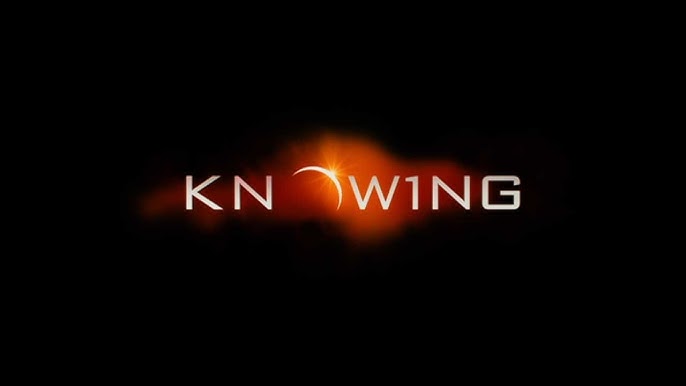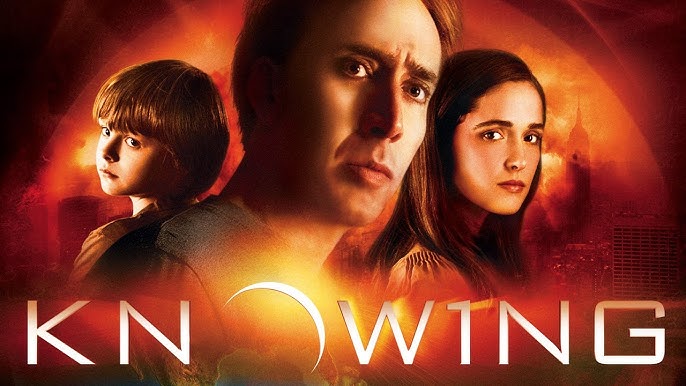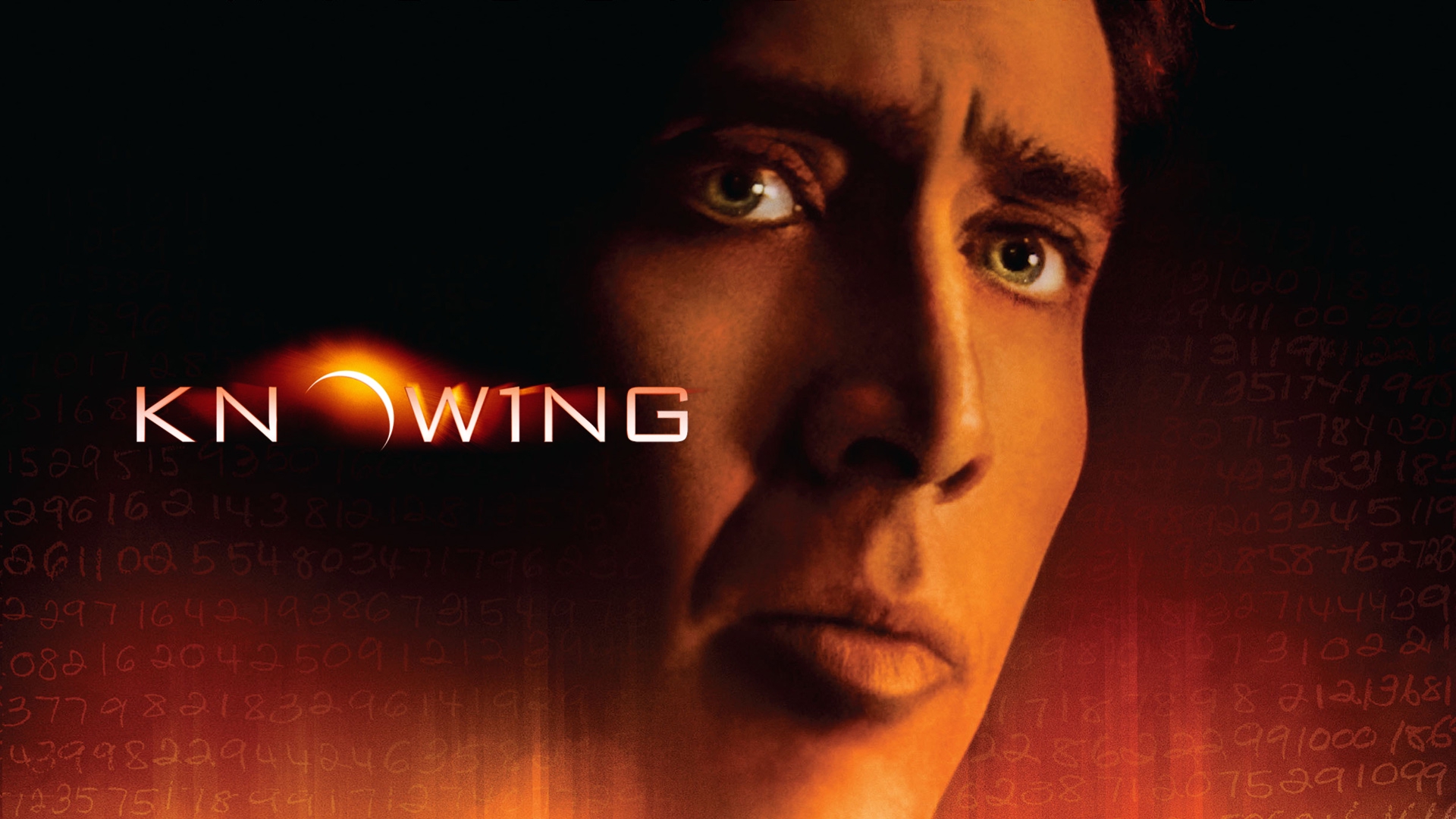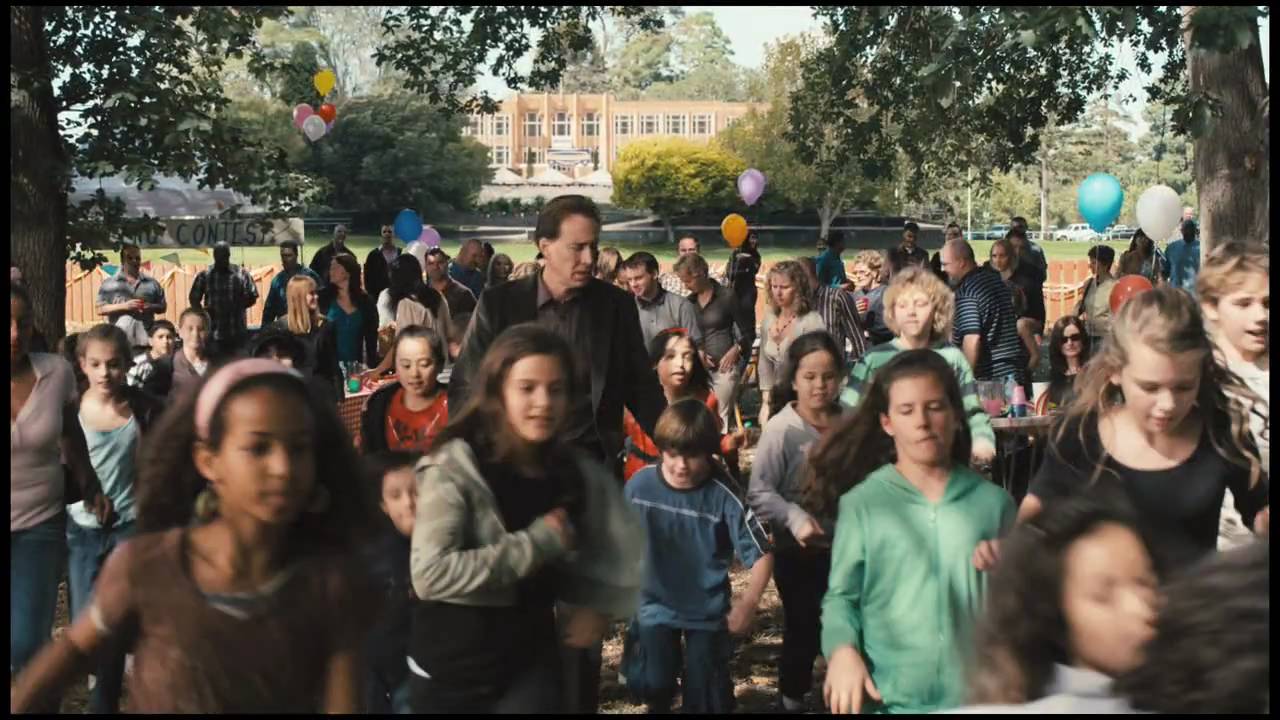🎬 Knowing (2009): A Cosmic Mystery of Fate, Disaster, and the End of the World

Knowing (2009), directed by Alex Proyas and starring Nicolas Cage, is a thought-provoking sci-fi thriller that blends apocalyptic themes with personal tragedy and philosophical questions about fate, destiny, and free will. With a plot that unfolds like a puzzle, the film weaves together elements of disaster movie spectacle, cosmic mystery, and existential dread. But as the story escalates into a battle between knowledge and inevitability, Knowing asks the audience: Is the future set in stone, or can we change it?
Plot Overview:
The film begins in 1959, when a school in Lexington, Massachusetts, buries a time capsule filled with drawings made by students to be opened 50 years later. One of the students, Lucinda Embry (Lara Robinson), fills her page with a seemingly random series of numbers instead of a drawing, much to the confusion of her teachers.
In 2009, the time capsule is unearthed, and the page of numbers is given to Caleb Koestler (Chandler Canterbury), the son of John Koestler (Nicolas Cage), a widowed MIT professor. John, grieving the loss of his wife and struggling with his belief system, dismisses the page at first, but soon realizes that the numbers represent a series of dates and coordinates predicting major disasters, including the date and location of his wife’s death.
As John digs deeper, he discovers that several of the disasters have already occurred, while others are yet to happen, including events that will lead to the destruction of the world. With only days left to prevent the final disaster, John must figure out what the numbers mean and whether he can change the course of events. Along the way, he encounters mysterious figures who seem to be guiding Caleb toward a higher purpose.
As the predictions of the numbers come true with chilling accuracy, John’s race to save humanity becomes a desperate battle between science and destiny, leading to a dramatic and cosmic conclusion.

Character Development and Themes:
Nicolas Cage delivers a solid performance as John Koestler, a man caught between skepticism and belief, science and fate. Cage plays John as a broken man, struggling to make sense of his personal grief and his place in the universe. His character arc is one of existential discovery, moving from a hardened, rational mindset toward an acceptance of something beyond his understanding. Cage imbues John with both vulnerability and determination, making him a relatable figure as he navigates the terror of knowing the world is ending.
Chandler Canterbury’s Caleb serves as the emotional center of the story. His relationship with his father is strained, with both still grieving the loss of Caleb’s mother. As Caleb begins to experience visions and encounters the mysterious figures known as “the Whisper People,” the bond between father and son becomes key to the film’s emotional depth. Caleb’s innocence contrasts with the weight of the impending apocalypse, and his growing connection to these otherworldly beings raises questions about predestination and human purpose.
Rose Byrne’s character, Diana, the daughter of Lucinda Embry, adds another layer to the film’s narrative. Diana, like John, is a parent trying to protect her child from forces beyond her control. As the daughter of the girl who wrote the cryptic numbers, Diana becomes an integral part of the unfolding mystery, bringing a sense of familial connection and the legacy of fate to the story.
Thematically, Knowing tackles issues of fate vs. free will, as John grapples with the idea that the future may be predetermined. The cryptic numbers are a representation of a deterministic universe, where everything has already been written, and humanity’s role is simply to play out the script. John’s attempts to change the future raise the question of whether knowledge of impending doom gives one the power to alter it—or whether such knowledge simply reinforces the inevitability of fate.

The film also delves into the concept of communication and higher beings, as the “Whisper People” (who later turn out to be extraterrestrial entities) seem to act as messengers or guides, influencing Caleb and John’s journey. Their role in the film touches on themes of cosmic intervention and the possibility that humanity is not alone in the universe, though their ultimate purpose is left ambiguous until the film’s conclusion.
Action and Visual Effects:
Knowing is packed with intense disaster sequences, which are among the film’s most visually striking moments. The disasters predicted by the numbers—ranging from plane crashes to subway collisions and, ultimately, global destruction—are depicted with a visceral, raw intensity. The plane crash scene, in particular, stands out for its unflinching portrayal of chaos and destruction, with the camera lingering on the aftermath in a way that heightens the horror of the event.
The visual effects are well-executed, especially considering the film’s modest budget. The apocalyptic imagery in the final act, where solar flares engulf the Earth in a fiery inferno, is both haunting and beautiful, capturing the scale of global destruction. The film’s depiction of these catastrophes plays into the larger narrative of humanity’s fragility in the face of forces beyond its control.
Cinematographer Simon Duggan creates a mood of growing tension and unease through the film’s atmospheric lighting and stark contrast between the everyday world and the encroaching disasters. The contrast between the calm, suburban settings and the sudden, violent disasters adds to the film’s unsettling tone.

The film’s climax, in which Caleb and other chosen children are taken by the extraterrestrial beings to repopulate a distant world, is visually reminiscent of religious iconography, drawing parallels to themes of salvation and rebirth. This cosmic imagery underscores the film’s broader themes of predestination and the cycle of life.
Criticism:
While Knowing is an ambitious film, it has faced criticism for its tonal inconsistencies and its reliance on familiar disaster movie tropes. The film starts as a grounded thriller with philosophical undertones but shifts into more fantastical territory in its third act, which may alienate some viewers. The revelation that the mysterious “Whisper People” are extraterrestrial beings tasked with saving the chosen few feels abrupt, and some critics argue that it detracts from the film’s more cerebral elements.
Additionally, the film’s heavy reliance on disaster sequences can feel repetitive, with each event serving as another step toward the inevitable end. While these scenes are well-executed, they occasionally overshadow the more interesting aspects of the story, particularly John’s emotional journey and the film’s exploration of fate and free will.
The film’s ending, in which Earth is destroyed and humanity is seemingly wiped out, has been divisive. Some viewers appreciate the boldness of such an apocalyptic conclusion, while others feel that the film’s shift toward a more spiritual or religious resolution (with the chosen children starting anew on a distant planet) is too far removed from the grounded tension of the film’s earlier acts.
Final Thoughts:

Knowing is a visually impressive and thought-provoking sci-fi thriller that asks big questions about fate, destiny, and the role of knowledge in shaping our lives. While the film’s tonal shifts and heavy reliance on disaster set pieces may detract from its more philosophical ambitions, it remains an engaging and emotional journey, anchored by a strong performance from Nicolas Cage.
For fans of apocalyptic thrillers and existential sci-fi, Knowing offers an intriguing mix of disaster spectacle and cosmic mystery, even if its final revelations may not resonate with everyone.
Movie Information:
- Title: Knowing
- Director: Alex Proyas
- Starring: Nicolas Cage, Rose Byrne, Chandler Canterbury, Lara Robinson
- Genre: Science Fiction, Thriller
- Release Date: March 20, 2009
- Running Time: 121 minutes
- Rating: PG-13
- Plot Summary: After his son receives a cryptic page of numbers from a 50-year-old time capsule, MIT professor John Koestler discovers that the numbers predict a series of global disasters, including the end of the world. As the predicted events come to pass, John races against time to uncover the truth and save his family, all while grappling with the possibility that the future may be unchangeable.
SUGGESTED VIDEO FOR YOU:
[Movie Review] Terrifier 3 (2024): The Return of Art the Clown in a Blood-Soaked Horror Sequel
[Movie Review] The Legend of a Hero Specializing in Hunting the Most Terrible Monsters in Greece











